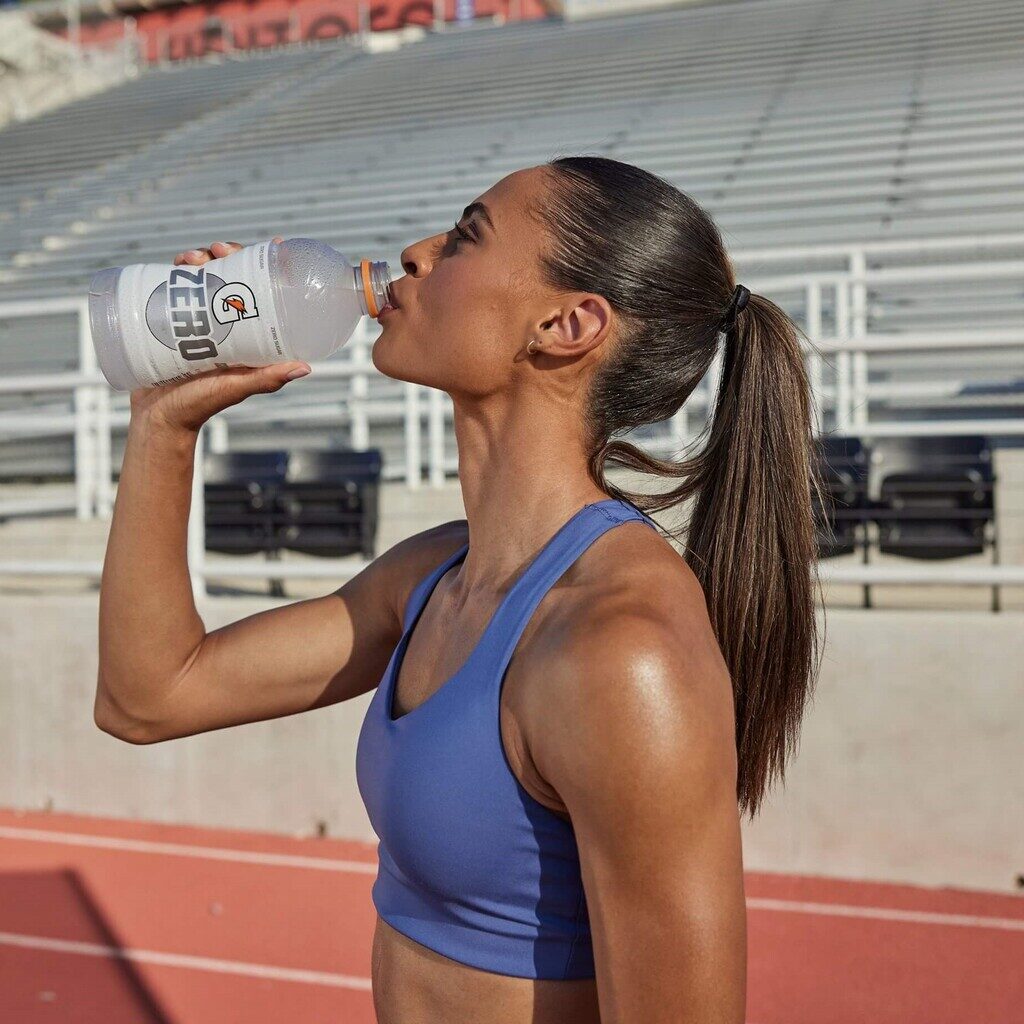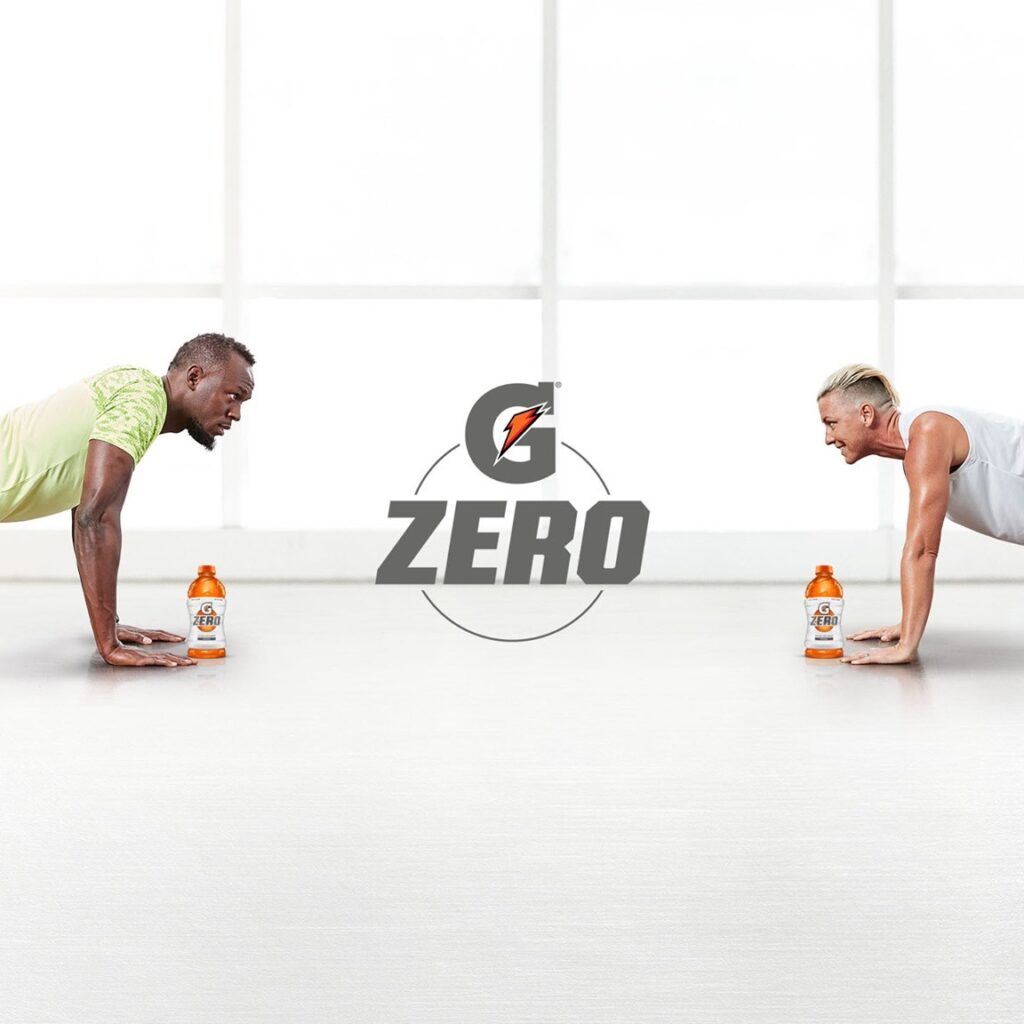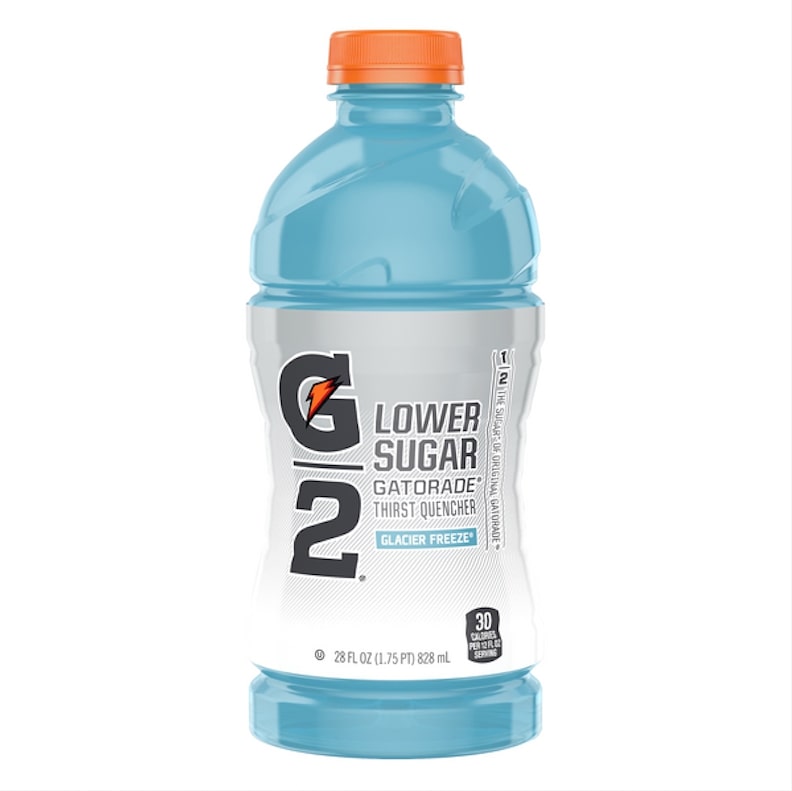Gatorade Zero is a sugar-free version of the popular sports drink, Gatorade. It was designed to cater to health-conscious consumers who are looking for a low-calorie, low-sugar alternative to traditional sports drinks.
However, with so many different types of sports drinks available on the market today, it’s natural to question whether Gatorade Zero is actually good for you.
In this article, we will take a closer look at Gatorade Zero and explore whether it is a healthy choice for athletes and non-athletes alike.
We will examine the nutritional content of Gatorade Zero, its potential health benefits and drawbacks, and provide insights on whether it’s the best choice for hydration during exercise or other physical activities.
By the end of this article, you’ll have a better understanding of whether Gatorade Zero is a suitable option for your hydration needs.
What is Gatorade Zero?
Gatorade Zero is a low-calorie, sugar-free sports drink that was introduced by Gatorade in 2018. It is designed to provide hydration and replenish electrolytes lost during physical activity without the added sugar and calories found in traditional Gatorade.
Gatorade Zero contains a blend of electrolytes, including sodium and potassium, as well as artificial sweeteners, such as sucralose and acesulfame potassium, to provide a similar taste to traditional Gatorade.
It comes in various flavors, including lemon-lime, glacier freeze, orange, and berry, and is available in both bottled and powdered form.
Gatorade Zero has gained popularity among athletes and fitness enthusiasts who are looking for a lower calorie and sugar alternative to traditional sports drinks.
Nutrition Facts of Gatorade Zero

Here are the nutritional facts of Gatorade Zero, per 12 oz serving:
- Calories: 0
- Total fat: 0g
- Sodium: 160mg
- Potassium: 35mg
- Total carbohydrates: 0g
- Sugars: 0g
- Protein: 0g
- Niacin: 4mg (20% daily value)
- Vitamin B6: 0.4mg (20% daily value)
- Vitamin B12: 1.2mcg (20% daily value)
- Pantothenic acid: 2mg (20% daily value)
Here are some of the main ingredients in Gatorade Zero and what they do:
- Water: Water is the main ingredient in Gatorade Zero and helps to keep the body hydrated.
- Electrolytes: Gatorade Zero contains electrolytes, including sodium and potassium, which help to regulate fluid balance in the body and maintain proper nerve and muscle function.
- Artificial sweeteners: Gatorade Zero contains sucralose and acesulfame potassium, which are both artificial sweeteners used to provide the sweet taste without adding calories or sugar.
- Citric acid: Citric acid is a natural preservative and flavor enhancer that is commonly found in beverages.
- Natural and artificial flavors: Gatorade Zero contains natural and artificial flavors to enhance the taste of the drink.
- Food colorings: Gatorade Zero contains food colorings, including yellow 5 and blue 1, to give the drink its distinctive color.
It’s important to note that while Gatorade Zero is marketed as a low-calorie and sugar-free option for hydration, it may not be suitable for everyone, particularly those with sensitivities to artificial sweeteners.
As with any dietary supplement, it’s a good idea to consult with a healthcare professional before consuming Gatorade Zero or any other energy drink.
Pros and Cons
Pros:
- Gatorade Zero provides hydration and replenishes electrolytes lost during physical activity without adding sugar or calories.
- The drink is available in various flavors and is generally well-liked for its taste.
- Gatorade Zero contains vitamins and minerals that support overall health and well-being, such as fighting infection, healing wounds, strengthening bones, and regulating hormones.
- The drink is convenient and easy to consume, making it a popular choice for athletes and fitness enthusiasts.
Cons:
- Gatorade Zero may not provide enough hydration or electrolyte replenishment for individuals engaging in prolonged or intense physical activity, as it does not contain as much sodium as some other sports drinks.
- Gatorade Zero contains artificial sweeteners, such as sucralose and acesulfame potassium, which some people may prefer to avoid.
- Some flavors of Gatorade Zero may be high in sodium, which can be a concern for individuals with high blood pressure or other health conditions.
- Excessive consumption of these drinks, especially without engaging in vigorous exercise, can raise the risk of overweight/obesity and other health issues like type 2 diabetes, cardiovascular disease, gout, and dental caries.
Overall, Gatorade Zero can be a suitable option for individuals looking for a low-calorie and sugar-free sports drink to help hydrate and replenish electrolytes lost during physical activity.
However, it’s important to consider the nutritional content of specific flavors of Gatorade Zero, as well as your individual needs and preferences, when deciding on a sports drink.
Drinking water and consuming a balanced diet are also important for overall health and well-being.
Health Benefits of Gatorade Zero

Gatorade Zero is a low-calorie sports drink designed to help athletes rehydrate and replenish electrolytes lost during exercise. Here are some potential health benefits of Gatorade Zero, supported by scientific sources:
- Hydration: Gatorade Zero contains electrolytes such as sodium, potassium, and chloride, which are important for maintaining proper fluid balance in the body.
- Electrolyte balance: The electrolytes in Gatorade Zero can help restore electrolyte balance and prevent hyponatremia (a condition where the body has too little sodium). Gatorade Zero was found to be as effective as regular Gatorade at restoring electrolyte balance in athletes.
- Improved athletic performance: Sports drinks like Gatorade Zero can replenish glucose and fluids and enhance endurance.
- Low calorie: Gatorade Zero is a low-calorie option for athletes who want to replenish electrolytes without consuming excess calories. Gatorade Zero can be a useful tool for weight loss in athletes, as it provides hydration and electrolytes without adding excess calories.
- No sugar: Gatorade Zero contains no sugar, making it a good option for individuals with diabetes or those who want to limit their sugar intake.
It’s important to note that while Gatorade Zero can have potential health benefits, it should not be used as a replacement for water or a balanced diet.
Additionally, individual results may vary depending on factors such as the type of exercise, the individual’s physiology, and other factors.
As with any dietary supplement, it’s a good idea to consult with a healthcare professional before consuming Gatorade Zero or any other sports drink.
What Do Medical Experts Say About Gatorade Zero?

Here are a few quotes and citations from medical experts about Gatorade Zero:
- The American Heart Association recommends limiting the amount of added sugars in your diet, including those found in sports drinks like Gatorade Zero. “Although they can be helpful in the right circumstances, these drinks can be high in calories and sugar, contributing to weight gain and tooth decay,” they state.
- According to Dr. Maren Fragala, a registered dietitian and director of research at the Korey Stringer Institute, “For most people, plain water is fine for hydration. But during long-duration exercise, it’s essential to replace water and electrolytes lost in sweat.” She goes on to note that Gatorade Zero can be a good option for those who want to replenish electrolytes without consuming excess calories.
- Dr. Robert Glatter, an emergency physician at Lenox Hill Hospital in New York City, notes that while Gatorade Zero can be a useful tool for athletes who need to replenish electrolytes, it should not be used as a replacement for water. “Plain water is always the best way to hydrate before, during, and after exercise,” he states.
- According to a 2020 article from Healthline, “Gatorade Zero is a low-calorie sports drink option that can be useful for athletes who need to replenish electrolytes during exercise without adding excess calories. However, it’s important to remember that plain water is sufficient for most people during moderate exercise.”
It’s important to note that these are just a few examples of opinions on Gatorade Zero from medical experts, and that individual opinions may vary.
As always, it’s a good idea to consult with a healthcare professional before making any significant changes to your diet or exercise routine.
Who Should Avoid Gatorade?
While Gatorade Zero can provide benefits to certain populations, there are some individuals who may want to avoid consuming it. Here are a few examples:
- Individuals with kidney problems: Gatorade Zero contains electrolytes such as potassium and sodium, which can be harmful for individuals with kidney problems. Furthermore, recent studies indicate that rehydration with sugary beverages, including sports drinks, imposes an extra burden on the kidneys of workers that are already under stress due to high heat and workload.
- Individuals with diabetes: While Gatorade Zero contains no sugar, it is still important for individuals with diabetes to monitor their consumption of sports drinks. According to an article published in Diabetes Forecast in 2019, “Sports drinks like Gatorade can have high levels of carbohydrates, which can raise blood sugar levels in people with diabetes.”
- Individuals trying to lose weight: While Gatorade Zero is a low-calorie option compared to regular Gatorade, it still contains artificial sweeteners that may contribute to weight gain. Artificial sweeteners may have adverse effects on glucose metabolism, gut microbiota, appetite regulation, and brain function, and they may contribute to weight gain and obesity.
It’s important to note that these are just a few examples of populations who may want to avoid consuming Gatorade Zero, and that individual circumstances may vary.
As always, it’s a good idea to consult with a healthcare professional before making any significant changes to your diet or exercise routine.
Alternatives to Gatorade
Here are three alternatives to Gatorade Zero that can help replenish electrolytes lost during exercise:
- Coconut water: Coconut water is a natural source of electrolytes, including potassium, magnesium, and calcium. It is also low in calories and sugar compared to many sports drinks. Some studies also found that coconut water can be as effective as a commercial sports drink at rehydrating athletes after exercise.
- Homemade electrolyte drink: You can make your own electrolyte drink using simple ingredients like water, salt, and lemon juice. This can be a cost-effective and healthier option compared to commercial sports drinks. Here’s a simple recipe: mix 1 liter of water with 1/2 teaspoon of salt, 1/4 cup of lemon juice, and 1/4 cup of honey or maple syrup for a natural source of carbohydrates.
- Nuun Sport Tablets: Nuun Sport Tablets are a popular alternative to sports drinks that come in tablet form. They contain a blend of electrolytes and are free from sugar, gluten, and dairy.
It’s important to note that while these alternatives can provide benefits, they may not be suitable for everyone. As always, it’s a good idea to consult with a healthcare professional before making any significant changes to your diet or exercise routine.
FAQ
Is Gatorade Zero a healthier alternative to other sports drinks?
Gatorade Zero is marketed as a healthier alternative to traditional sports drinks, as it contains fewer calories and no sugar. However, it’s important to check the nutrition label of specific flavors to determine their specific nutritional profile.
Can Gatorade Zero be used for hydration during prolonged or intense physical activity?
Gatorade Zero may not provide enough hydration or electrolyte replenishment for individuals engaging in prolonged or intense physical activity, as it does not contain as much sodium as some other sports drinks. Other sports drinks that contain higher levels of sodium and other electrolytes may be more appropriate.
Does Gatorade Zero contain caffeine?
Gatorade Zero does not contain caffeine.
Is Gatorade Zero gluten-free?
Yes, Gatorade Zero is gluten-free, which can be important for individuals with gluten sensitivities or celiac disease.
Is Gatorade Zero safe for children to drink?
Gatorade Zero is generally safe for children to drink in moderation, as long as they are engaging in physical activity and their overall diet is balanced. Excessive amounts can cause hyperactivity and weight gain.
However, it’s important to check the nutrition label of specific flavors to determine their specific nutritional profile.
How much Gatorade Zero should I drink?
The amount of Gatorade Zero you should drink depends on your individual needs and the duration and intensity of your physical activity. It’s generally recommended to drink water and sports drinks in combination, and to drink enough to replace fluids lost through sweat.
Conclusion: Is Gatorade Zero good for you?
Gatorade Zero can be a suitable option for individuals looking for a low-calorie and sugar-free sports drink to help hydrate and replenish electrolytes lost during physical activity.
Gatorade Zero contains a blend of electrolytes, including sodium and potassium, as well as artificial sweeteners, such as sucralose and acesulfame potassium, to provide a similar taste to traditional Gatorade.
It’s important to check the nutrition label of specific flavors to get a more accurate understanding of their nutritional content.
While Gatorade Zero can be a helpful addition to an active lifestyle, it should not be relied upon as the sole source of hydration or nutrition.
Some flavors of Gatorade Zero can be high in sodium, which can be a concern for individuals with high blood pressure or other health conditions. Additionally, the drink may not provide enough hydration or electrolyte replenishment for individuals engaging in prolonged or intense physical activity.
Ultimately, whether Gatorade Zero is a good choice for you depends on your individual needs and preferences. It’s important to consider the sodium content, electrolyte balance, and other nutritional factors when deciding on a sports drink.
Additionally, it’s important to remember that a balanced diet and regular exercise are important for overall health and well-being. Consulting with a healthcare provider or registered dietitian can also help you determine if Gatorade Zero is a suitable choice for your individual needs.
References:
- U.S. Department of Health and Human Services. (n.d.). Pass the salt: Sodium’s role in nerve signaling and stress on blood vessels. National Institute of General Medical Sciences. Retrieved April 11, 2023, from https://biobeat.nigms.nih.gov
- Department of Health & Human Services. (2020, December 20). Vitamins and minerals. Better Health Channel. Retrieved April 11, 2023, from https://www.betterhealth.vic.gov.au
- Association of sports drinks with weight gain … – wiley online library. (n.d.). Retrieved April 11, 2023, from https://onlinelibrary.wiley.com
- Centers for Disease Control and Prevention. (2022, August 23). Sodium, Potassium and Health. Centers for Disease Control and Prevention. Retrieved April 11, 2023, from https://www.cdc.gov
- Sports drinks. The Nutrition Source. (2019, September 23). Retrieved April 11, 2023, from https://www.hsph.harvard.edu
- CA;, D. I. B. H. (n.d.). Does sport-drink use during exercise promote an acute positive energy balance? International journal of sport nutrition and exercise metabolism. Retrieved April 11, 2023, from https://pubmed.ncbi.nlm.nih.gov
- Schneider, M. B., Benjamin, H. J., Bhatia, J. J. S., Abrams, S. A., Ferranti, S. D. D., Silverstein, J., Stettler, N., Thomas, D. W., Daniels, S. R., Greer, F. R., McCambridge, T. M., Brenner, J., Cappetta, C. T., Demorest, R. A., Halstead, M. E., Koutures, C. G., LaBella, C. R., LaBotz, M., Loud, K. J., … Rice, S. G. (2022, August 31). Sports drinks and energy drinks for children and adolescents: Are they appropriate? Augusta University Research Profiles. Retrieved April 11, 2023, from https://augusta.pure.elsevier.com
- AE;, J. (n.d.). Nutrition for endurance sports: Marathon, triathlon, and road cycling. Journal of sports sciences. Retrieved April 11, 2023, from https://pubmed.ncbi.nlm.nih.gov/21916794/
- Moyce, S., Mitchell, D., Vega, A., & Schenker, M. (2020, July). Hydration choices, sugary beverages, and kidney injury in agricultural workers in California. Journal of nursing scholarship : an official publication of Sigma Theta Tau International Honor Society of Nursing. Retrieved April 11, 2023, from https://www.ncbi.nlm.nih.gov
- Ruiz-Ojeda, F. J., Plaza-Díaz, J., Sáez-Lara, M. J., & Gil, A. (2019, January 1). Effects of sweeteners on the gut microbiota: A Review of Experimental Studies and Clinical Trials. Advances in nutrition (Bethesda, Md.). Retrieved April 11, 2023, from https://www.ncbi.nlm.nih.gov
- Fooddata Central Search Results. FoodData Central. (n.d.). Retrieved April 11, 2023, from https://fdc.nal.usda.gov
- Consumption of sports drinks research by children and adolescents. (n.d.). Retrieved April 11, 2023, from https://healthyeatingresearch.org
Next, check out some recent reviews you might find useful:

Leave a Reply